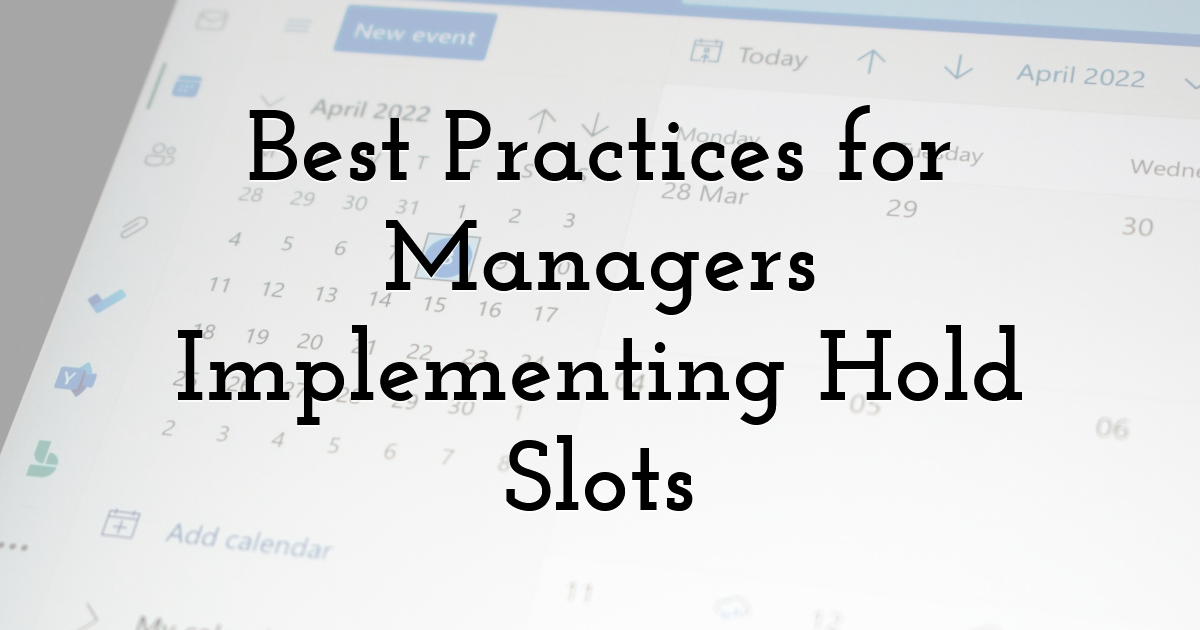How Can Managers Use Hold Slots for VIPs and Emergencies?

Airports and transportation hubs often face sudden schedule changes, last-minute VIP arrivals, or emergency operations that demand quick adjustments. Managers who plan ahead can prevent delays and confusion by keeping specific slots open for these situations. Hold slots give managers the flexibility to prioritize VIPs or respond to emergencies without disrupting normal operations.
By using hold slots strategically, managers can balance efficiency and fairness across all flights or services. This approach helps maintain smooth traffic flow, keeps key clients satisfied, and supports safety protocols during unexpected events. It also aligns with best practices in slot coordination and resource management, where every decision affects overall capacity and timing.
Understanding how to assign and manage hold slots effectively allows managers to protect operational stability even under pressure. The following sections explore the principles behind hold slot use and outline practical steps for applying them in daily operations.
Core Principles of Using Hold Slots for VIPs and Emergencies

Hold slots help managers maintain flexibility in busy schedules by reserving specific times for high-priority clients or sudden events. They allow quick adjustments without disrupting normal operations and support better service quality, staff efficiency, and customer satisfaction.
Defining Hold Slots and Their Importance
A hold slot is a reserved appointment space that remains unbooked until a specific need arises. Managers use it to handle last-minute VIP bookings or time-sensitive issues without rearranging the full schedule.
Hold slots reduce cancellations and scheduling stress. They also help maintain fairness by keeping a balance between planned and urgent appointments. For example, a salon can use an all-in-one POS system by Time Tailor to manage hold slots automatically and track usage trends.
Using digital tools allows staff to view real-time availability, adjust time blocks, and reduce manual errors. This structure supports smoother operations and better resource use, especially in high-demand environments where flexibility determines customer satisfaction.
Prioritizing VIPs and Dignitaries in Scheduling
VIPs and dignitaries often expect privacy, punctuality, and personalized service. Managers can dedicate specific hold slots to these clients to maintain discretion and prevent delays. Assigning trained staff who understand confidentiality and service expectations helps build trust.
A clear protocol for VIP scheduling avoids confusion. Staff should know which clients qualify for priority and how to handle overlapping requests. Using coded identifiers or private booking channels keeps sensitive information secure.
Hold slots also help manage unexpected travel or event changes. By keeping a few slots open each day, managers can meet high-value clients’ needs without disrupting other appointments.
This approach maintains professionalism and consistency across all service levels.
Emergency Scenarios and Rapid Response
Emergencies such as equipment failure, staff absence, or urgent customer needs demand quick action. Hold slots act as built-in buffers that allow managers to reassign time without major disruption.
For example, if a medical or technical issue arises, the reserved slot can absorb the delay. This prevents a chain reaction of missed appointments. Managers can also use hold slots to handle walk-ins requiring immediate attention.
Clear communication is important during emergencies. Staff should update affected clients quickly and rebook them into available hold slots. This practice protects the business’s reputation and keeps operations stable even under pressure.
Balancing Routine Operations with Special Accommodations
Hold slots must support both daily operations and special circumstances. Too many reserved slots lead to wasted time, while too few create stress during peak periods. Managers should analyze booking data to decide how many slots to keep open each day.
Consistency matters. Regularly reviewing how often hold slots are used helps refine scheduling rules. If VIP or emergency use declines, those slots can return to general availability.
Technology simplifies this balance. Automated scheduling tools can predict busy periods and recommend adjustments. This approach keeps operations steady while leaving room for flexibility, helping teams serve every client efficiently without sacrificing service quality.
Best Practices for Managers Implementing Hold Slots

Managers must balance fairness, efficiency, and flexibility when reserving hold slots for VIPs or emergencies. Clear communication, structured procedures, and strong coordination within event management help prevent delays and confusion during high-pressure moments.
Effective Communication with VIPs and Stakeholders
Managers should set clear expectations with VIPs before assigning hold slots. They must explain how the process works, what timeframes apply, and which conditions trigger slot release. This prevents misunderstandings and keeps schedules predictable.
Regular updates help maintain trust. A short, direct message confirming slot details or changes often avoids later disputes. Managers should also document all slot requests and confirmations to create a transparent record.
Event teams benefit from a simple communication chain. Each person should know who approves changes and how to escalate issues. By keeping messages short and factual, managers reduce delays and keep both VIPs and staff aligned.
Integrating Hold Slot Protocols into Event Management
Hold slot procedures should fit smoothly into the broader event management plan. Managers can assign specific time windows for VIPs or emergency use and mark these clearly in the scheduling system. This structure helps avoid overlap with other bookings.
A written protocol helps staff act consistently. It should outline how to reserve, release, or reassign a hold slot and list who has authority to make those decisions. Consistency improves coordination across departments such as logistics, security, and guest services.
Managers should review slot usage after each event. Data on slot frequency, cancellations, and delays can reveal patterns that guide future planning. Adjusting policies based on this feedback keeps the system efficient and fair.
Role of the Event Manager in Crisis Situations
In emergencies, the event manager must respond fast and keep communication clear. He or she decides how to allocate reserved slots without disrupting ongoing schedules. Quick judgment and calm direction help stabilize the situation.
The manager should coordinate with staff to reroute resources or adjust timing as needed. For example, a sudden VIP arrival or weather delay may require reassigning a hold slot to maintain flow.
After the event, the manager should review what worked and what failed. This reflection supports better decision-making in future incidents and strengthens the team’s readiness for unexpected events.
Final Thoughts:
Managers can use hold slots as a smart tool to keep operations flexible and organized. These reserved spaces help them respond fast to unexpected issues or last-minute VIP needs without disrupting the schedule.
By setting clear rules for how and when to release or assign these slots, teams reduce confusion and keep workflows steady. This approach supports both guest satisfaction and staff efficiency.
Hold slots also create a safety net for emergencies. They allow managers to adjust plans smoothly, protect key resources, and maintain service quality even under pressure.
A balanced strategy that includes hold slots helps managers stay ready for change, meet VIP expectations, and handle surprises with confidence.
Until next time, Be creative! - Pix'sTory



